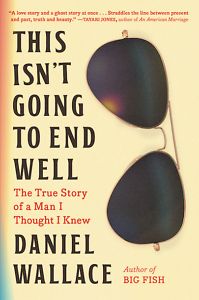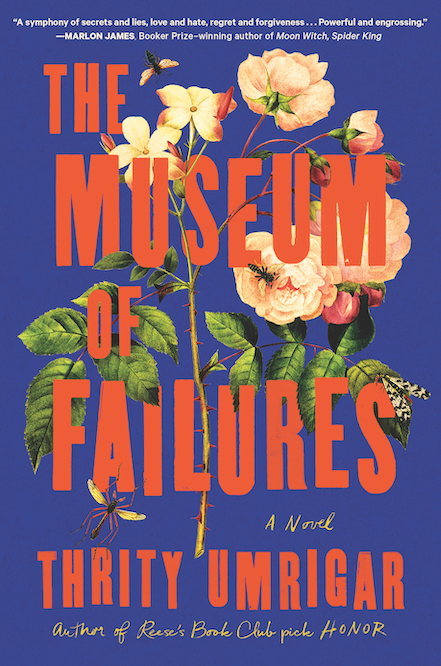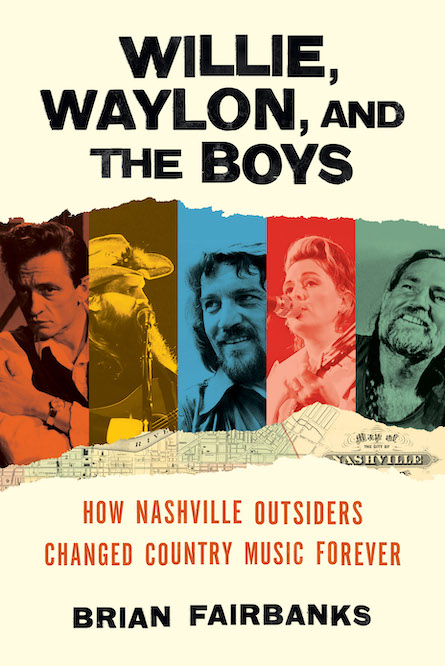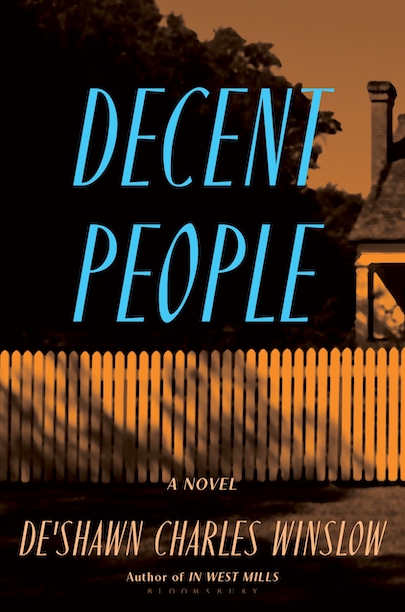The Boy Beneath the Hero
Daniel Wallace, author of Big Fish, writes a heartbreaking (and aptly titled) memoir
Daniel Wallace is best known for Big Fish, his 1998 debut novel, and its star-studded 2003 film adaptation by director Tim Burton. Since then he has produced a steady stream of comically odd Southern fiction, most recently Extraordinary Adventures in 2017. His first nonfiction book, This Isn’t Going to End Well: The True Story of a Man I Thought I Knew, occasionally provides some of the same wackiness as his fiction. Yet as the title promises, the true story Wallace has waited decades to tell is tragic and heartrending.

You know where a book is headed when the author’s note before the first chapter includes the National Suicide Prevention Lifeline number. In the note, Wallace lays out the central tragedy: the suicide of William Nealy, his brother-in-law, childhood hero, and inspiration to become a writer. “Suicide is one of the most traumatic deaths, no matter how it’s undertaken,” Wallace writes, “and those left behind suffer through a complicated grief that may never subside.” In exploring his own particularly complicated grief, Wallace reveals his coming of age as a writer, the tragic yet inspiring life of his sister Holly, and a cast of larger-than-life characters as beguiling as any of his fictional inventions. Gradually the reader comes to realize that those inventions exist only because of Wallace’s long friendship with Nealy, which began in childhood.
A meticulous artist and cartoonist in the manner of R. Crumb, Nealy developed a unique style that became popular with river runners and the growing outdoor culture — or more accurately, counterculture — of the 1970s. It was fitting that his early work was published in Outside magazine, a spinoff of Rolling Stone. Samples of Nealy’s work, often informative and always comical, appear before many of Wallace’s chapters.
Nealy’s cartoon river maps were first collected in a book in 1981. Until his death in 2001, he created a steady stream of illustrated books on various outdoor pursuits. Wallace, a college dropout coerced into working for his father’s company in Japan, dreamed of one day writing his own book. Although he had managed to publish a few stories in small literary magazines, he considered that dream unattainable. “But to be able to watch someone do it — someone I actually knew — changed all of that,” he writes. “If he could do it, why couldn’t I?”
 Wallace explains that “as a Southern writer, which is what I was or what I would likely become once I wrote anything, fishing was a requirement.” Nealy, “the kind of man Hemingway would have liked,” thus teaches him how to fish, over a summer that seems at times the backstory to Big Fish. Along the way, Wallace is pulled into a Southern male world of guns, drugs, and dangerous characters in the woods. Eventually, when one of Nealy’s drug-dealing friends is murdered in Birmingham, Nealy becomes obsessed with solving the murder and bringing the culprit to justice. Wallace portrays Nealy’s relentless hunt as a key to his friend’s growing depression, and over the course of the memoir, Wallace too plays detective in the unsolved case, long after Nealy’s suicide:
Wallace explains that “as a Southern writer, which is what I was or what I would likely become once I wrote anything, fishing was a requirement.” Nealy, “the kind of man Hemingway would have liked,” thus teaches him how to fish, over a summer that seems at times the backstory to Big Fish. Along the way, Wallace is pulled into a Southern male world of guns, drugs, and dangerous characters in the woods. Eventually, when one of Nealy’s drug-dealing friends is murdered in Birmingham, Nealy becomes obsessed with solving the murder and bringing the culprit to justice. Wallace portrays Nealy’s relentless hunt as a key to his friend’s growing depression, and over the course of the memoir, Wallace too plays detective in the unsolved case, long after Nealy’s suicide:
What happened in Birmingham, what it led to, how it all fell out, is one of the saddest stories I know. I don’t know if I can do it justice. I try to keep my authorial distance, but there is a difference in writing about the life and death of someone you knew and writing about a character who exists solely between the covers of a book, no matter how much time has passed between the event and the recording of it. If this were a novel, I would delight in the darkness I had created for my characters, this apparently hopeless realm into which I had them descend, knowing that I had it within my power to save them. But I’m powerless.
While Wallace is powerless to change the facts — not only Nealy’s facts, but those of his sister and others who populate the memoir — he brings to the task an immense talent for simple prose that ignites complex emotion. “Why would I immerse myself in the beautiful lives that ended in such tragedy?” he asks the reader.
This Isn’t Going to End Well provides his moving and unforgettable answer.

Michael Ray Taylor is the author of Hidden Nature and other books. He lives in Arkansas but often loses himself within the caves of Tennessee.


